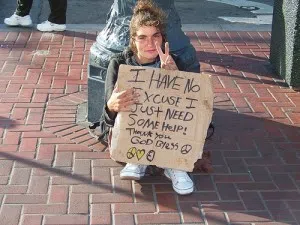The London City Council has recently implemented a policy that limits the use of federal funds for homeless resting areas in Business Improvement Areas (BIAs). This choice has generated mixed reactions throughout the community, with local business owners generally in favor yet wary. In contrast, community advocates and residents voice worry about possible unintended effects on the city’s homeless population.
Council members state that the policy’s purpose is to improve the experience of customers frequenting local businesses, especially in busy shopping districts. Entrepreneurs who have long grappled with problems related to homelessness in these areas think the new policy could alleviate difficulties impacting their everyday operations.
A downtown café proprietor, wishing to stay unnamed, expressed his views on how homelessness affects his business: “Creating a friendly atmosphere is challenging when individuals are smoking or lounging near the premises.” “Customers may occasionally decide to leave simply due to the view outside.” The café owner recounted past efforts to resolve these problems, observing that, despite his initiatives, people frequently came back to the area. “I truly value the City Council’s choice,” he stated, optimistic that it will inspire a change that favors both entrepreneurs and their customers.
Nonetheless, the policy has elicited varied reactions even from supportive entrepreneurs, who acknowledge its potential effects reaching beyond their customer demographic. Another store owner voiced this doubt: “This might be beneficial for my neighborhood, but it could bring additional obstacles for businesses beyond the BIAs. The homeless population might spread into different locations, making it tougher for them and presenting additional challenges for the community overall.
The policy’s dependence on private security and initiatives led by the BIA has attracted additional scrutiny. Local security teams are currently responsible for enforcing no-resting areas, yet there is a prevailing tension. The store proprietor stated, “There are tools that assist us in keeping individuals moving, but the problem extends beyond just relocating someone.” I feel no animosity toward individuals experiencing homelessness, but if they begin to create a disruption, it falls on me to handle it.”
Community advocates are growing more worried about the wider consequences of this choice. Some contend that the policy threatens to isolate an already at-risk population by limiting their access to areas containing vital services, like shelters, food programs, and healthcare facilities typically situated within BIAs. A community advocate for the homeless expressed these worries: “We acknowledge that businesses desire a friendly atmosphere for their patrons. However, this choice may drive homeless people away from the essential resources they require, potentially worsening their situation. 
As London adapts to this new environment, uncertainties remain regarding the long-term impacts on both companies and the community. The City Council has not yet revealed additional plans for increasing support or resting areas beyond the BIAs, leaving the future ambiguous. Entrepreneurs anticipate enhanced customer experiences, whereas advocates are concerned about the spread of homelessness and its possible effects on the city’s wider social structure. The upcoming months will show if this policy achieves the desired equilibrium between business interests and caring approaches for the homeless population in London.


